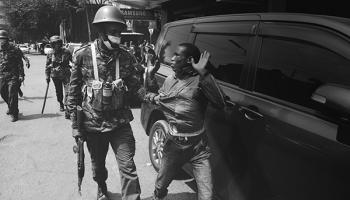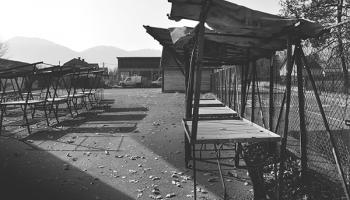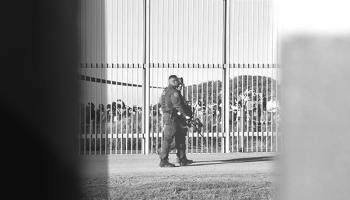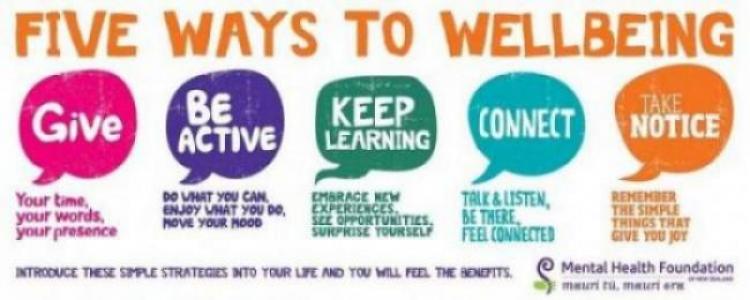
May is, in many countries, now recognised as Mental Health Awareness Month. Recently it was UK Mental Health Awareness week. The Mental Health Foundation states that it takes “a public mental health approach to prevention, finding solutions to individuals, those at risk and for society, in order to improve everyone’s mental wellbeing.” This statement frames mental health as a communal issue and responsibility.
There is much more acceptance currently that we are all vulnerable to troubled mental health, and that we need to stop ‘othering’ mental health issues – i.e. treating a person or group of people as intrinsically different from and alien to oneself. This prevents us being in touch with and monitoring our own mental health, and may result from a fear of what we could find in our own inner world. If we can overcome this fear, or turn around a dismissive approach to our own emotions, there are great benefits. Dr. Gabor Mate, physician and addiction specialist, says “Knowing oneself comes from attending with compassionate curiosity to what is happening within.”
The experience of 15 months of COVID-19 and its multiple implications means that globally, we have all been impacted at once by extraordinary stress and isolation. The Under the Mask site has drawn attention to many instances of imprisonment and brutal treatment of populations at the hands of the state and its institutions –at the hands of the police for example, if we have dared to criticise our government’s COVID-19 response, or if we’ve been unable to comply with curfews. On top of this there is the anxiety and direct experience of economic suffering, most acutely for those who live on a daily wage.
Some of these impacts may be traumatic, and for some of us, these COVID-related traumas may come on top of past unresolved trauma, and so further compound problems. Violence, in its many forms, is often a root cause of trauma, and can perpetuate violence when unresolved. The Green String Network (GSN), based in Nairobi, recognises that people, and more often, communities, living with unresolved trauma are unable to engage creatively or effectively until the trauma is addressed. The GSN brings a healing-centered approach to peacebuilding, human security, social work, community development, and governance, and demonstrates the importance of integrating healing processes into both personal and community practice. Angi Yoder-Maina, the director of GSN, thinks this could be why years of aid delivery, and millions of U.S. dollars invested, has had little impact in countries that have experienced war and conflict, and therefore are surviving with a largely traumatised and unhealed population.
At the root of healing lies the transformative power of love. For healing to take place we need a safe space, inclusion, and love. We need to be a part of the communities around us and engage with others genuinely and openly and with the expectation of being heard. Unhealed trauma continues to generate violence, but work which incorporates strong elements of healing can break the cycle of violence, and as the individuals and communities involved in a particular project, program, institution, or process begin to flourish, so does the work at hand. This is found to be true at a personal, local, and national level. There are people who show resilience in the face of early childhood trauma. They go on to flourish, whereas many people instead become addicted to drugs or alcohol, become chronic ‘pleasers’ ignoring their own needs, or end up in prison. What creates the capacity for resilience? People who have received consistent love and support from someone in their childhood, maybe a teacher or other connection outside of their family. This has been recognised by many people from multiple disciplines, including medics such as Gabor Mate, neurologists, anthropologists, social scientists, and psychiatrists such as Bruce Perry, who repeatedly emphasises that our human nature is to collaborate and live inter-connected and peaceful lives. His recent book, co-written with Oprah Winfrey, “What Happened to You” explores this.
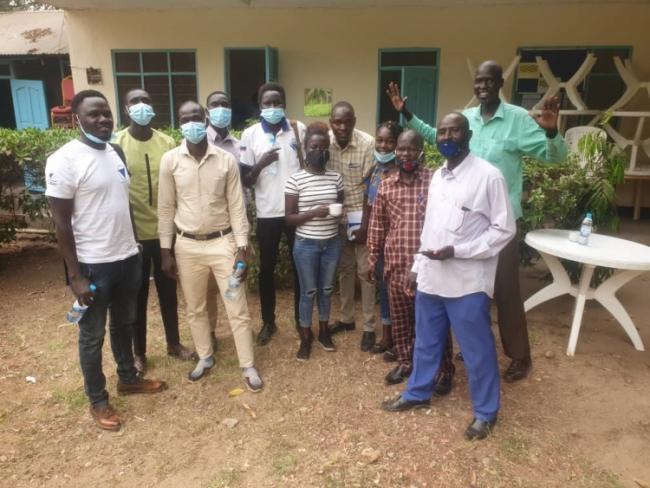
AFSC has just begun to address issues of trauma. In its first year, AFSC’s South Sudan Program has provided trauma healing to dozens of peacebuilders, strengthening their ability to support their communities. One said ‘We now have two wings to fly - peace building and trauma healing. I have seen increased support from my colleagues who understand the linkage between peace building and trauma healing. One must be healed to heal others’. Zaina Kisongoa, the Somalia Country Representative concurs, and says ‘It’s critical for peacebuilding organizations to make trauma healing an essential mainstream practice, providing workers with the psychosocial supports they need’. AFSC and partners also provide counselling and other vital services in Dadaab refugee camps to refugees and asylum seekers from Somalia and elsewhere.
As we consider government responses to the pandemic and look for strategies and tools communities can use to protect their civic space, as well as remembering to develop a process to enable healing experiences for those who need them, we cannot ignore those restricting the space of others. Here is a challenge indeed – how do we begin to engage authoritarians, and those who drive institutions perpetuating structural violence, in healing processes? If we fail to address this question and do not develop effective approaches that can take root, will we be able to succeed? It may be that efforts and investments are either ineffective or unsustainable without engaging perpetrators of structural violence and societal inequalities.
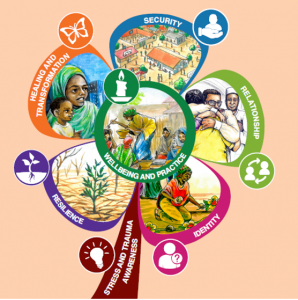
The GSN has in fact developed a model to undertake such work, and gives training in the Wellbeing and Resilience Framework. They have begun work with the Kenyan police force. The official incorporation of this training by the Kenyan police indicates an evolution within the institution that initially felt trauma sensitivity would weaken them. They now accept that trauma sensitivity will strengthen them as a body, improve their operations, and hopefully reduce the rising numbers of suicide within the force.
Societal trauma needs to be addressed inclusively and holistically so as to prevent it from manifesting in new and alternative forms. Reducing issues of mental health to a medical model of providing treatment to ‘cure’ an individual’s illness misses the point, as do psychosocial programmes which ignore the complexities and the entirety of the issues at hand. It is a critical area to explore further – we cannot continue to ignore unresolved trauma wherever it lies, be it within recovering child-soldiers, or within the ministries of overbearing governments.
Similarly, we all need to make time to consider our own emotions, and the impacts of trauma and isolation on our own psyche. The Healing Solidarity Collective is a very good place to start, designed to remind us practitioners working in peacebuilding and international development that for us to be effective, we need to be balanced and grounded and cared for, as the AFSC South Sudan program is doing. It is not enough for peacebuilding and development organisations to pay lip-service to the wellbeing of their staff. Wellbeing is not a whimsical add-on, this is central to the effectiveness of our own interventions, and a lack of care for our own wellbeing can have a detrimental effect on the work we implement and our colleagues. If we genuinely intend to do no harm with our interventions, we must first look at how we are to heal and thrive, and how the people we engage with will be able to do the same.
